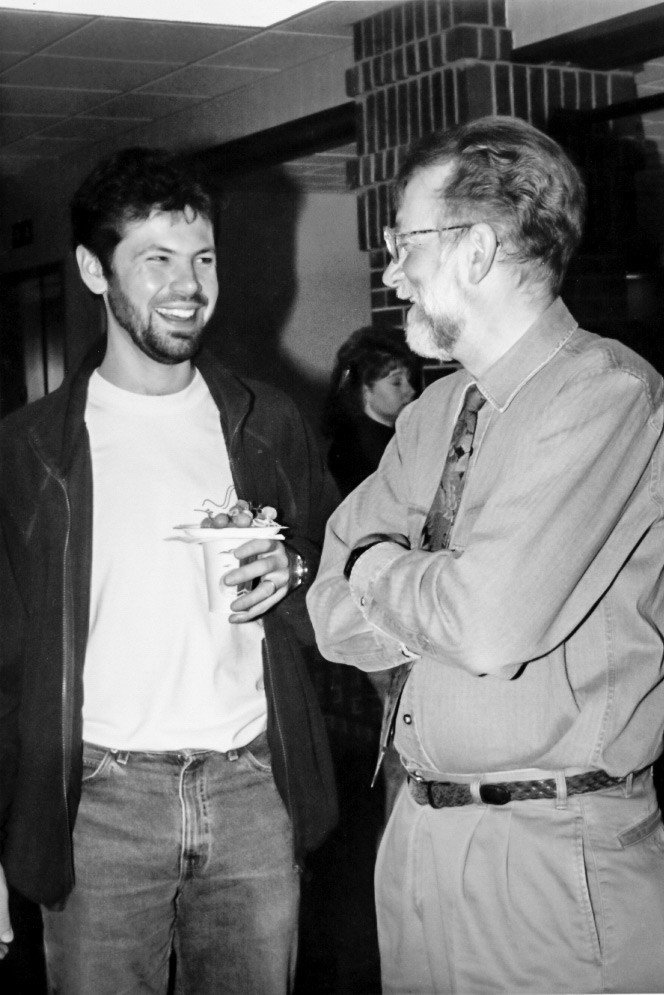
When the Church of England installed its first woman bishop, 48-year-old Libby Lane, on March 8, 2015 – on International Women’s Day – it represented the culmination of years of debate, lobbying, anguish and finally respectful conversation to arrive at what one senior leader called this “new chapter…in the Church of England.”*
It’s the “respectful conversation” part that interests us here. Bridge Builders contributed to making this conversation possible and thus, arguably, to making it possible for the Church of England to arrive at this new chapter of ordaining women as bishops, without breaking up over it.
The respectful conversation was proposed by the Archbishop of Canterbury’s first “director for reconciliation,” David Porter. Porter proposed that a full day of the General Synod’s “business time” in July 2013 be devoted to facilitated dialogue in small groups. Alastair McKay, MA ’99, then executive director of Bridge Builders, contributed to the design of the day and referred a dozen people trained by Bridge Builders to be facilitators of these small-group conversations.
“Such dialogue is about seeking a way to grow in understanding of one another,” wrote McKay at the time. “It opens up the possibility of exploring how each participant has arrived at a particular position, and why some things are important to him or her. It gives participants a chance to engage with one another’s story. And it offers the prospect of real and deeper listening to one another.”
Moving away from the debate mode marked by entrenched positions, the conversation mode requires time and a “skilled facilitator who can maintain a calm presence in the face of others’ anxiety,” said McKay. The facilitator needs to establish “safe space” by establishing a clear process and securing a commitment to the process.
The aim in July 2013 was to encourage participants to understand each other’s positions and to grow in mutual respect as they did so, McKay said. “The two key fruits of any effective dialogue process are that of journeying together and of building relationships.”
When the members of the Synod later moved to a formal decision-making context, they were more moderate in their language than they had been previously. They appeared to treat those with different views more respectfully, rather than as stereotypes.
“As Christian disciples, we need to expect that we will disagree with one another,” wrote McKay of that era before the Church of England shifted its historical stance and permitted women to be bishops. “What becomes critical is how we disagree, whether we can stay in one another’s company on the journey, and whether we can deepen our relationships with one another in the way that Jesus longed and prayed for, for his disciples.”
Facilitated dialogue helps on a much smaller scale, as well. In a local parish recently, a church leader trained by Bridge Builders was wrestling with this contentious issue in his congregation: the use of a digital projector and screen to display the words of the worship service.
“Having learned a thing or two at Bridge Builders’ residential and one-day courses,” wrote James (not his real name), “I started with a Bible study on the handling of conflict in Acts 6, then asked everyone in the room for their opinions…. ‘What makes you think that? What is your underlying concern?’
“There was some vigorous disagreement. Some quite difficult things were said…We asked for ideas to meet one or more underlying concerns – we got several, and then looked at them to see which might be effective at meeting those concerns. It became clear that there was a good consensus on two or three principles – that we wanted to keep using the projector, but that the screen was in the wrong place and the words weren’t always easy to see.” Everyone agreed to set up a task force to recommend practical solutions.
“It felt as if we’d had a grown-up conversation in a Christian spirit,” said James. “It had taken us from some anger to a sense of moving forward together.”
* The legislation permitting women to be bishops in the Church of England was adopted in November 2014.